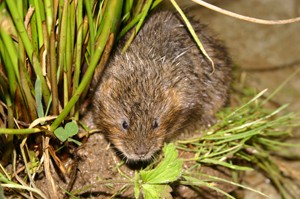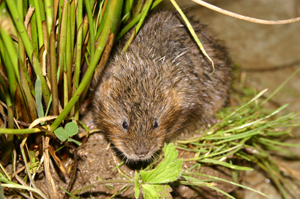
A series of surveys to gauge the success of a project to help boost water vole numbers in north Wales will be held this Summer.
Water voles are in serious decline in many parts of Britain. The surveys will provide the benchmark for the future conservation of water voles in north Wales.
The surveys have been organised by BASC and will be undertaken on the Llyn Peninsula as part of a three year project funded by Natural Resources Wales to tackle Invasive Non Native Species, including American mink.
BASC members are being asked to help with the surveys.
The first survey will take place on Natural Resources Wales’ Cors Geirch National Nature Reserve on July 6th as part of a water vole survey training day being run by BASC and Gwynedd County Council and hosted by the Bodfuan shoot. Further surveys are planned for later in the Summer.
Jono Garton, who runs the Bodfuan Shoot and is a member of BASC Council, said: “Mink prey on water voles and are considered to be the main reason behind the dramatic crash in water vole numbers since the early 1990s. Female mink, especially, are able to get down into water vole burrows and eat both adults and young. Mink also feed on rabbits and on ground nesting birds, with some evidence that they impact on juvenile salmonid populations too.”
The Rivers Soch, Geirch and Penrhos were last surveyed by BASC in 2011 and water vole signs were found at a number of locations.
BASC’s Green Shoots officer Audrey Watson said: “Since 2011, BASC has operated a programme of mink control on the main rivers with the help of shoots, landowners, and fisheries in an attempt to protect the remaining water vole populations on the peninsula.
“This repeat survey will enable us to gauge how successful that control programme has been and will provide the benchmark for future conservation of water voles throughout the project area. When we first started trapping mink, we had reports of nearly 20 being caught on the Llyn. Last year, we caught five with the same number of traps and none this year. What we hope to find is that our success in reducing the number of mink has allowed water voles to survive and hopefully spread.”
To get involved, contact Audrey Watson on 07531 141497.
ENDS
